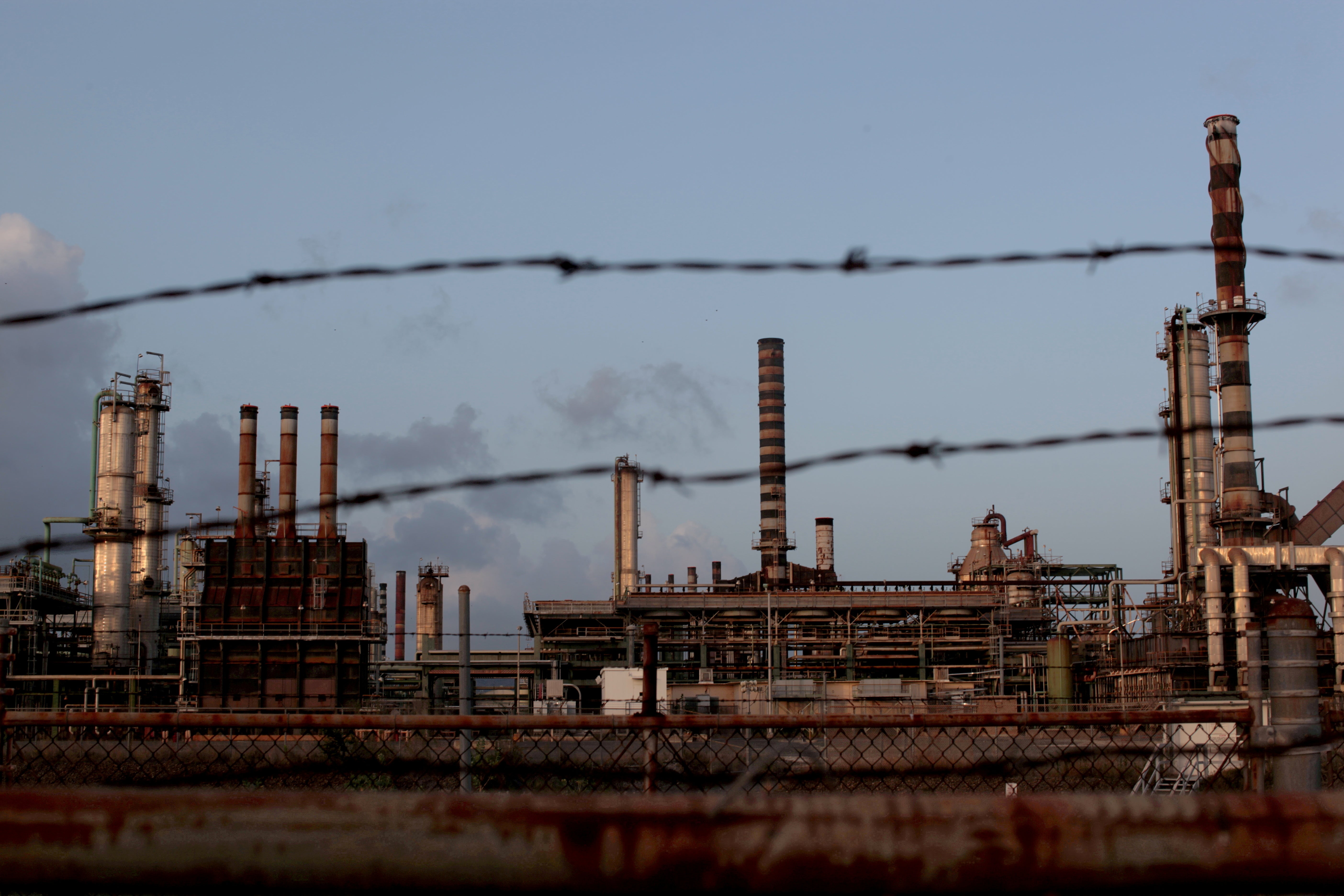Controversial refinery that showered people with oil droplets announces it is closing for good
‘Limetree had a very high rate of environmental violations over a very short period of time. It was an environmental catastrophe unfolding in real time,’ scientist says of plant in St. Croix

Your support helps us to tell the story
From reproductive rights to climate change to Big Tech, The Independent is on the ground when the story is developing. Whether it's investigating the financials of Elon Musk's pro-Trump PAC or producing our latest documentary, 'The A Word', which shines a light on the American women fighting for reproductive rights, we know how important it is to parse out the facts from the messaging.
At such a critical moment in US history, we need reporters on the ground. Your donation allows us to keep sending journalists to speak to both sides of the story.
The Independent is trusted by Americans across the entire political spectrum. And unlike many other quality news outlets, we choose not to lock Americans out of our reporting and analysis with paywalls. We believe quality journalism should be available to everyone, paid for by those who can afford it.
Your support makes all the difference.An oil refinery in the US Virgin Islands is closing it doors, having caused a number of ecological issues in the local area after it was reopened by the Trump administration.
The site, known as Limetree Bay, on the Caribbean island of St Croix, is closing operations for a second time. The first time was prompted by an oil spill 10 years ago.
Scientists have now explained why the refinery was forced to close for a second time, suggesting it could have been predicted.
“Limetree had a very high rate of environmental violations over a very short period of time. It was an environmental catastrophe unfolding in real time,” Judith Enck, who worked at the Environmental Protection Agency during Obama’s presidency, said to The Washington Post.
These violations included raining oil droplets, noxious gas that caused locals to be hospitalised, and fears about the drinking water being contaminated with poisonous substances.
Ms Enck, now a visiting fellow at Bennington College, criticised the previous government for allowing the refinery to reopen after its first closure, telling the Post: “The Trump administration never should have allowed them to restart because they were very inexperienced. They didn’t know what they were doing, and within days of restarting experienced significant environmental problems.”
She said she was alarmed when she discovered that the people reopening the plant had “no experience” in a similar field, and said the best thing was to leave the plant “dormant”.
Jeff Rinker, the CEO of Limetree Bay, announced the site was shutting down in a statement, saying it was their “only option”, citing “extreme financial constraints facing the company”.
Bennington College professor David Bond and his team conducted a survey about the negative impact of the plant on the nearby residents, describing their findings as “overwhelming” as they interviewed 400 people via telephone about their experiences.
He said that the ramifications often felt “invisible” as it caused things like breathing problems. Local community figures have also discussed the legacy that the plant has left, and the problems it has caused.
Executive director of Crucian Heritage and Nature Tourism Frandelle Gerard said to The Post, “The people of St. Croix are owed a great debt accruing from the historical operations of petrochemicals plants on our land.”
However, local political leaders were concerned about the affects on the island’s economy. According to the island’s Democratic governor Albert Bryan Jr, 800 jobs will be lost following shut down. He spoke at a press conference about the refinery’s closure, remarking on the loss to the local economy.
“We continue to work with them, their investors and the EPA to restart the important economic engine, not only to St Croix but to the Virgin Islands,” he said to reporters.
However, the island was not unified in this opinion, with some saying it was time to change the nature of the economy.
“I also view this as an opportunity for our government to seek alternative avenues to diversify our revenue streams and our economic portfolio as a territory outside of the oil business,” said Jelani Ritter, a resident of the island told Reuters of the potential to reshape the economy.
President Joe Biden has previously emphasised the importance of climate justice and has vowed to use 40 per cent of federal environmental funds on deprived areas.
Join our commenting forum
Join thought-provoking conversations, follow other Independent readers and see their replies
Comments